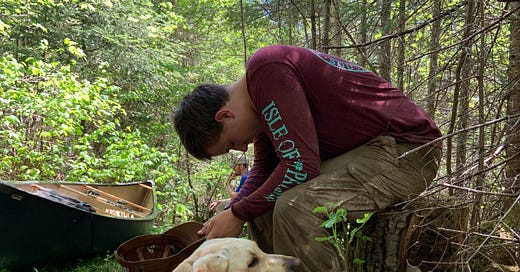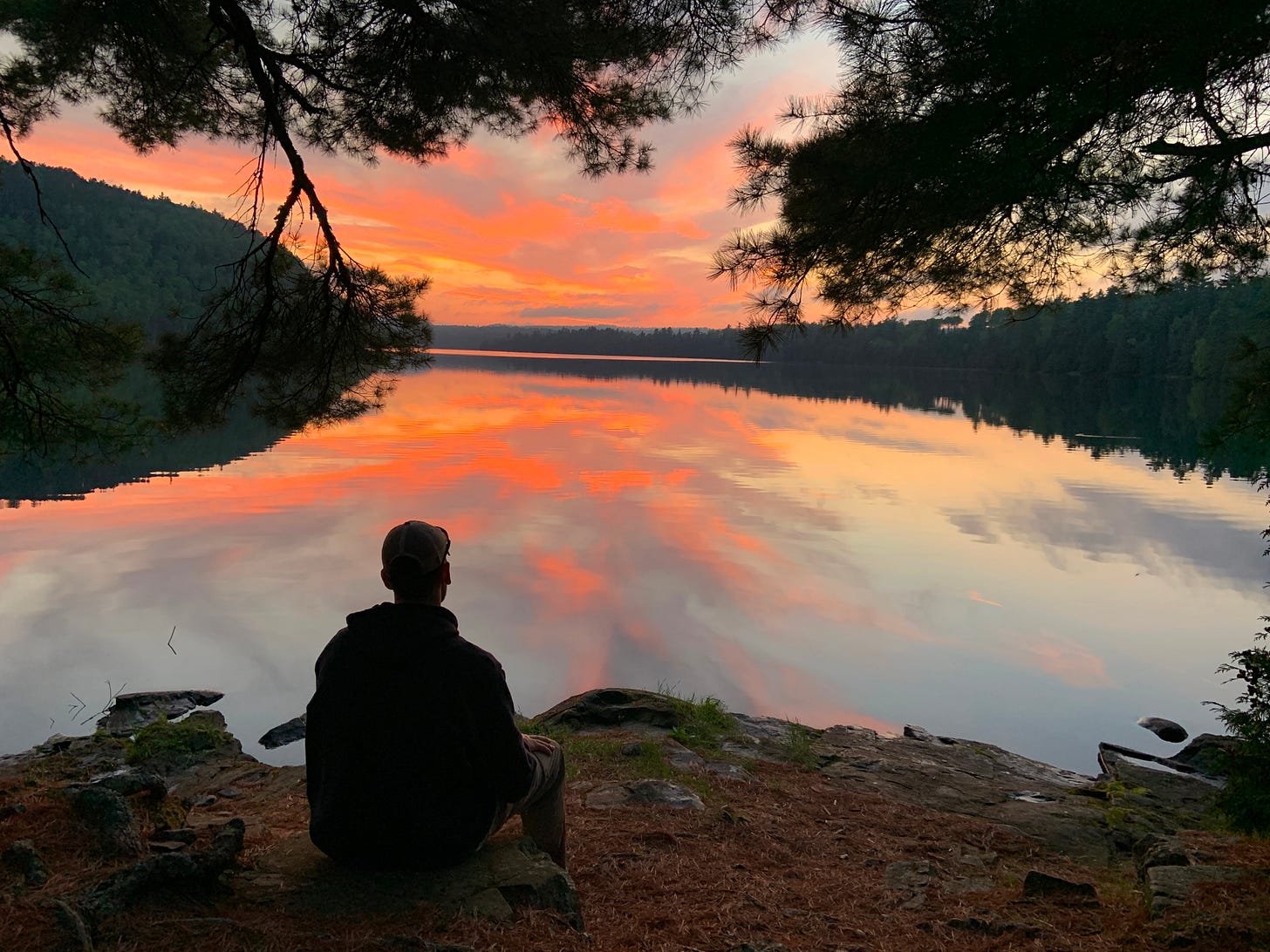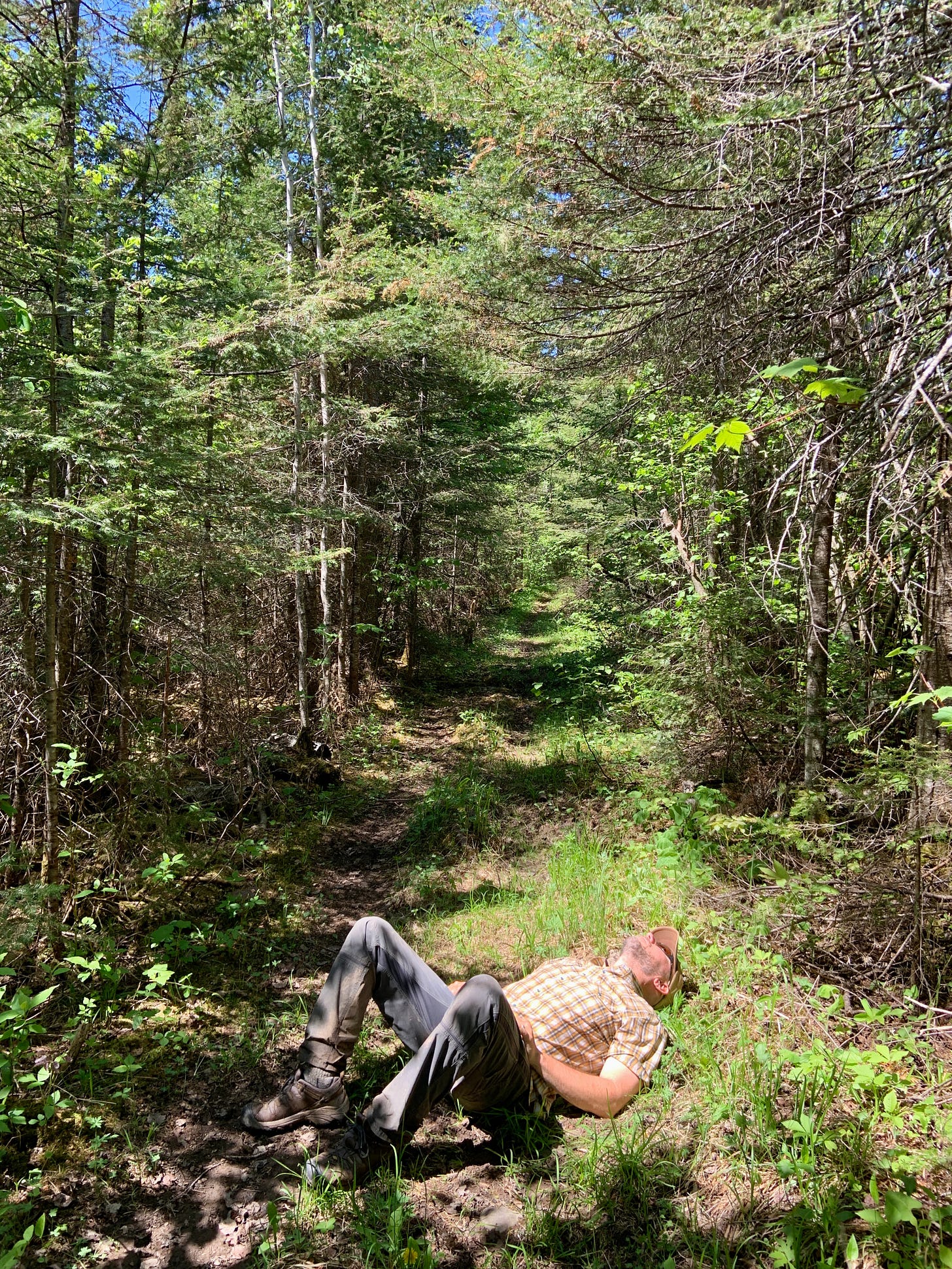Five years ago this week, I drove north out of the Twin Cities, a canoe on the roof of my truck, and a city on fire in my rearview mirror.
I was headed into the Boundary Waters Canoe Area Wilderness with my friend, Bob Timmons. In the back seat sat my son, Aidan, and Bob’s son, Nick. Bob writes and edits Outdoors articles for the Strib, and in 2019 we’d paddled the Voyageur’s Highway from Gunflint Lake to John Lake for a series of stories in the paper. But we stopped short of the ultimate challenge: the 2720-rod (8.5-mile) Grand Portage, from the Pigeon River to Lake Superior.
The wilderness – particularly the BWCA – has become to me what the ancient Stoic philosophers called memento mori: a reminder of my own mortality. I go there to leave the comfort and safety of modern life, to be challenged with the risk and uncertainty inherent to wild places. But sometimes, like June, 2020, modern life seems mighty uncertain, too. As Bob and I were planning our return to the BWCA, everything changed. Twice.
First, Covid hit. Nick graduated from college with neither ceremony nor celebration. And Aidan was sent home from high school and told to learn remotely, sitting in his bedroom and looking at a computer screen all day. Being an active, social young man, that wasn’t going well, amplifying the incentive for Bob and me to get our boys out of the house and into the wilderness.
We set dates and made arrangements. Then, on the eve of our trip, everything changed again when George Floyd was murdered and people took to the streets.
We talked with our wives and other children – if we stuck with the plan, we’d be leaving them in a city that was descending into chaos and fury. They gave us their blessing to go, but our farewells were wrought with anxiety.
Countless science fiction novels and films have this very premise: the protagonist lives in the woods, or falls into a coma, or is cryogenically frozen, only to emerge to a world forever changed by a bomb or a pandemic or civil war.
That’s what Bob and I talked about our first night, at a campsite on John Lake, while our sons stood knee-deep in the lake fishing for smallmouth bass. Was it irresponsible for us to leave our families and our city in the midst of riots and violence? Would the uprising be catastrophic or insignificant? We had no idea. And we were out of the reach of cellphone reception for the better part of a week. All we had was each other and the lakes, rivers, and portages of a million-acre wilderness.
As we made our way toward the Grand Portage over several days, I thought of those who’d plied these waters before us: Native Americans, voyageurs, and lumbermen. They lived lives vexed with illness and violence that are foreign to us – our lives are immeasurably more comfortable and safe than theirs were. We were away from our families for a few days; they disappeared into the wilderness for months or years. Many never returned, perishing of disease or festering injury or deadly cold; buried by comrades alongside the very portages we were walking. They knew war and violence and revolution.
It's easy for us to forget how difficult were the lives of our ancestors. No matter your skin color or ethnicity, go back enough generations and your relatives survived a pogrom or pestilence or war. Life was hard, uncertain, risky
We finally arrived at the Grand Portage. With canoes on our shoulders and packs on our backs, it took us over five hours to reach Gitchee Gamie. Rarely have I felt my own mortality and frailty as I did that day.
Here’s what I wrote in the StarTribune:
I hoisted a canoe over my head and began, knowing that I had hours of effort ahead of me.
We traveled at first about 2 miles per hour, including rests, but after a couple of hours our pace had slowed and we decided to stop every 15 minutes. After another hour, and slowing further, we dug deep and shortened our bursts to 10 minutes.
As I trudged through ankle-deep mud with either yolk pads or pack straps torturing my shoulders, I cataloged my life: What, if anything, had I ever done that was more difficult than this? Maybe the day I summitted three 14,000-foot peaks in Colorado. But I was 30 then, and I'm now 52. Mainly I concentrated on putting one foot in front of the other, and praying that my son would make it.
At each rest stop, I came in last, the tortoise of the group. I dropped my load, put my hands on my knees, and looked at Aidan. He sat for a moment or two without talking, then stood up, took on his freight, and set out for the next leg.
It took us over five hours.
We drove back into civilization. Minneapolis was still standing, but it was smoldering. The parking lot of the hotel less than a mile from my house was full of military vehicles, the staging area for the National Guard. The whole experience was, to use an overused word, surreal. And it serves as a reminder that life on this planet – in a city or a wilderness – is often risky and uncertain.







Tony, this is exquisite. Your writing is from the beyond and I loved how you brought this full circle. The end was perfect.